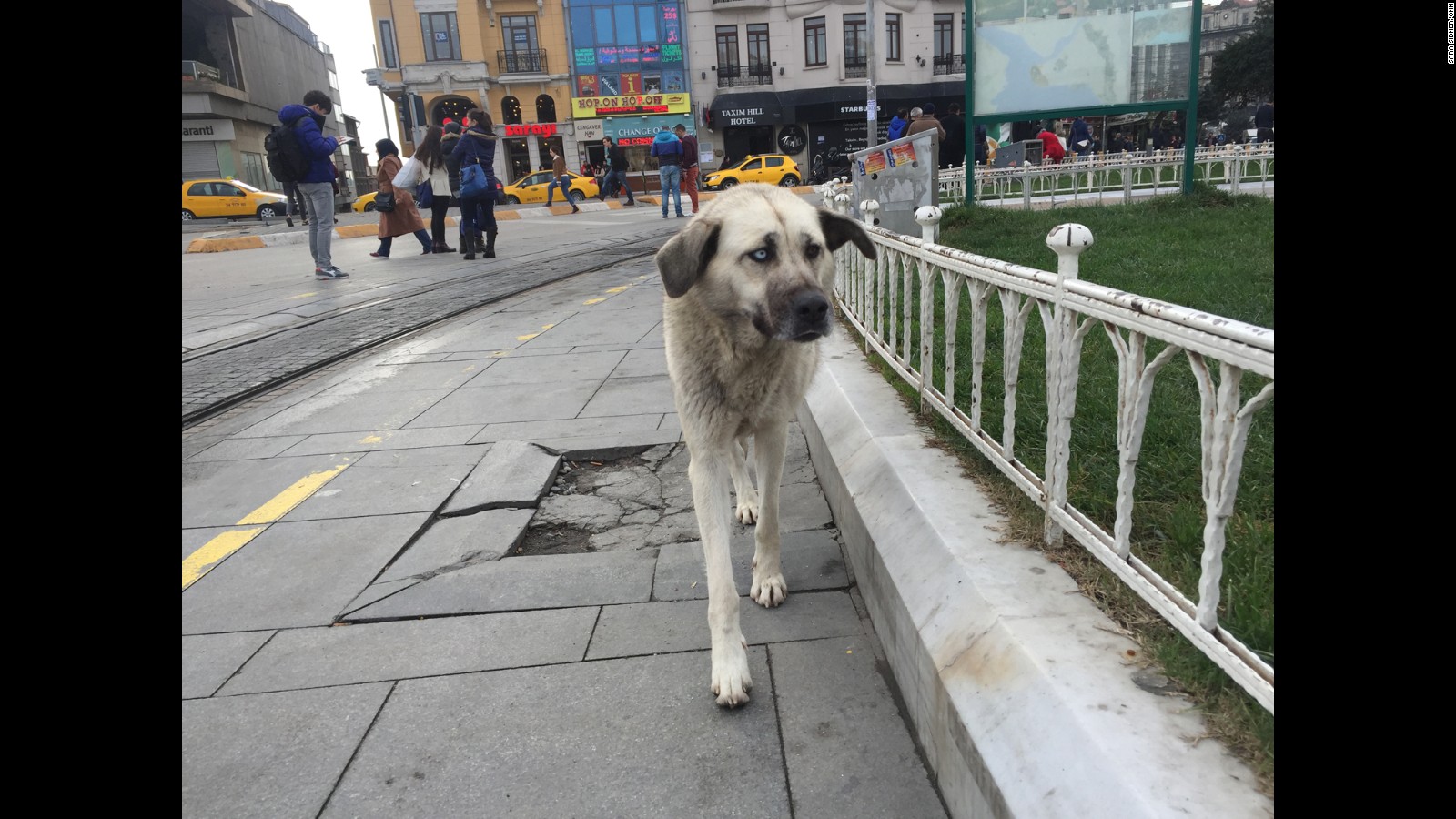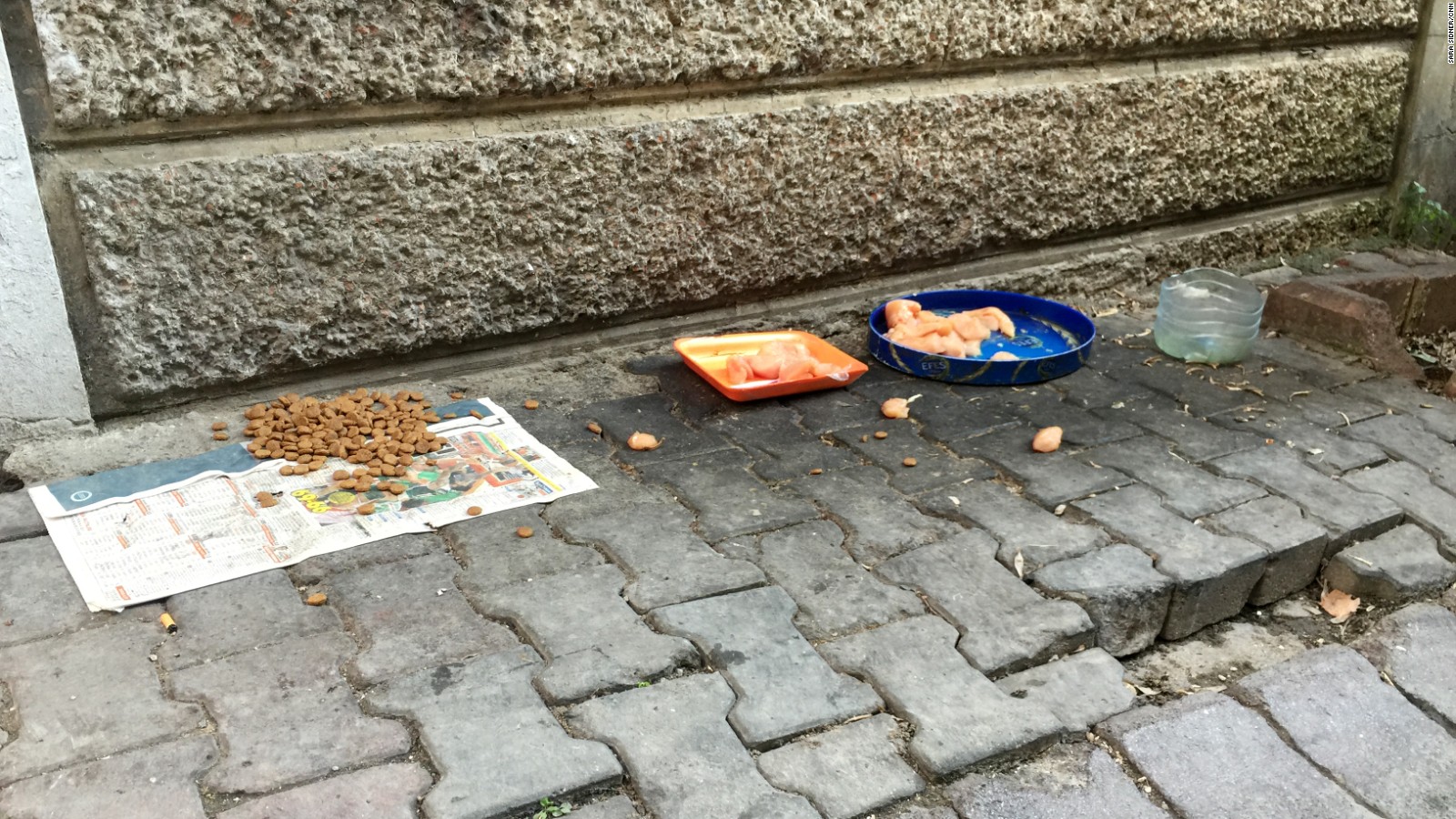How Istanbul's abandoned street dogs end up in America
Updated 0623 GMT (1423 HKT) December 14, 2015
Story highlights
- Turkey has a problem with people dumping golden retrievers once they grow up
- Activists have found new homes for many dogs in the United States
Istanbul (livelyface via CNN)In an unassuming home in a tidy neighborhood of Istanbul, you can hear the occupants long before you see them.
They greet you with more warmth and affection than you can take in. Except for one very tiny fellow, who greets strangers by baring teeth and barking until you stop looking into his eyes.
Ultimately they all want two things.
"They cannot talk. They don't steal. They just want food and affection."
Yasemin Baban knows exactly what they want, because she has spent the last decade rescuing them from the streets and forests of Istanbul. Baban has made it her mission to find homes for stray dogs, no matter where it takes her or the animals.
"I have dedicated my life to saving dogs and cats and domesticated animals here," Baban said.
In a strange twist of fate, she has found homes for dozens of the dogs nearly 6,000 miles from Istanbul -- in the United States. Specifically, Atlanta.
"It's amazing. It feels like a dream," Baban said.

A stray dog walks in Taxim Square, Istanbul
'Crying is not enough'
It all started 10 years ago when Baban returned to her home country, Turkey, after living abroad. She went into a Turkish dog shelter and had an emotional response after just a few moments of seeing the dogs crammed in cages on concrete floors.
"I left the shelter crying. Then I went again, then I cried. And I said, 'Crying is not enough -- someone has to do something.' Then I started to volunteer in shelters," she said.
After a while, she learned of a new phenomenon. It had become popular, even fashionable, in Istanbul to own one of the friendliest breeds of dogs, golden retrievers. But it turns out it was the puppies that were popular. When the dogs grew up, things changed.
"That's an unfortunately tragic story," said Ahmet, who helps rescue dogs alongside Baban. "They buy them from the pet shops and when they grow bigger, it's difficult to keep them in their houses, so they just leave the dog in the forests or the streets. Unfortunately that's why there are so many."
Worse, he says, is that unlike typical stray dogs that know how to navigate the streets, find food, and fight for a space of their own, the golden retrievers just can't cope on their own outside.
"They are too used to being with their human family. They are unaggressive and gentle and they cannot survive well in the cold," Ahmet said.
So Baban and later Ahmet, along with several other volunteers and dog trainers, took it upon themselves to begin rounding up the golden retrievers, along with other dogs, and sheltering them in their designated doggy hotels.
'Turkey dogs' to America
It just so happened Baban bumped into an American friend, who was also an animal lover, and learned that Americans have a thing for golden retrievers.
"They love them. There are even waiting lists at rescues for goldens. So it is not like any American goldens won't get adopted. They all get adopted eventually," she said.
Baban found a partner in the United States, which made a perfect match.Adopt a Golden Atlanta has taken in 123 dogs so far from Istanbul. They have affectionately named them "Turkey dogs."
"We continue to help every golden retriever that we know about," said AGA president Lauren Genkinger in an online video. "It doesn't matter if they are in Georgia, the Carolinas, New York or wherever they are. We will never let a golden retriever die in a shelter if we know about it."
But Baban and her Turkish dog rescuers have some very adamant critics. Baban says she has been threatened over the work she does because of false rumors.
"Someone who is uneducated has made rumors that the dogs are being sent to the U.S. to be used in experiments, or sent to kill shelters. It is simply not true," Baban said.
Istanbul's long history of street dogs
To understand the anger and suspicion of those who have threatened Baban and her volunteers, you have to understand a bit about the ties between Istanbul and its dogs.
Dogs have a place in this city's history. Istanbul has endured through many conquerors and so have its stray dogs. From Ottoman times to now, street dogs have been as much a part of the fabric of this city as the Bosporus. Mark Twain couldn't help notice them when he visited Istanbul in 1897 and mentioned the pitiful condition of the strays in his travel book "Innocents Abroad."
Times have changed -- sort of. The strays look well-fed in some parts of the city; sometimes they are even welcomed at neighborhood eateries when they trot up to the guests who are sipping Turkish coffee outside. Some are even allowed to take a seat along with the humans. Enough people in the city consider the dogs part of their greater Istanbul family that they are willing to fight for them.
In 2012, thousands of people marched in the streets of Istanbul and several other cities to stop the passage of an updated version of Turkey's Animal Protection Law No. 5199. The changes to that law would have allowed cities to capture and euthanize some of the strays that roam the streets unclaimed, but apparently not unloved. The estimates for the numbers of street dogs in Istanbul alone sway wildly from 70,000 to 150,000. No one knows exactly how many there are, but they are unavoidable. They seem to be everywhere.
After the protests, the city changed tack. Now Istanbul is working on capturing and tagging the dogs, checking to see if they are aggressive. If not, the city is supposed to release them back in the neighborhoods where they normally roam.

Residents in Istanbul leave food out on the sidewalks for the stray dogs.
Not as healthy as they look
But many end up in the forested areas surrounding Istanbul. Just because many look relatively well-fed and are not aggressive toward people, all is not well. Baban is trying to get that message across to those who think she is running some sort of dog racket or has ulterior motives.
"From the dogs we rescued that flew to America last, about 40% had broken teeth with nerves out in their mouth. Imagine how much pain they are in," Baban said. "A dog cannot speak and the people believe they are in good condition. But they are not. They have no chance to be medically checked in foster (homes) or in shelters here."
That's where Adopt a Golden Atlanta comes in. In Turkey, Baban and her volunteers make sure the dogs have a microchip for identification, are spayed or neutered, and have a good enough bill of health to be shipped in crates and flown to America.
Once they get to AGA, they are given whatever medical attention they need, which can be quite expensive. The charitable organization relies on donors to keep afloat, and you can follow a dog's progress online.
"I can't thank them enough, as well as the ... American people who take them in," Baban said.
Trying to help other breeds too
The program has become so popular that other golden retriever rescues in the United States are also taking in "Turkey dogs." So far, more than 200 have been sent over from Istanbul.
At the "doggy hotel" in Istanbul, more have arrived from the streets and forests. And they are just some of the dogs brought in from the streets.
"They are very lovely and social dogs, and if we can save them now, why not?" Baban said.
She is also trying to find homes for other breeds that are abandoned in high numbers, like German shepherds and a variety of dogs used for hunting. She knows her work will likely never be done.
It is not lost on Baban that there are human beings, namely Syrian refugees, who are also gathering in large numbers on the borders and in the streets of her country, who also would love a chance at going to the United States. It is simply beyond her power to singlehandedly change that. But she says helping abandoned animals is not.
"A dog cannot talk and cannot say what he is suffering from. A dog doesn't know to beg. A human, worst-case scenario, can at least steal to stay alive. They can explain themselves. A dog has no chances in a city like this," Baban said


No comments:
Post a Comment